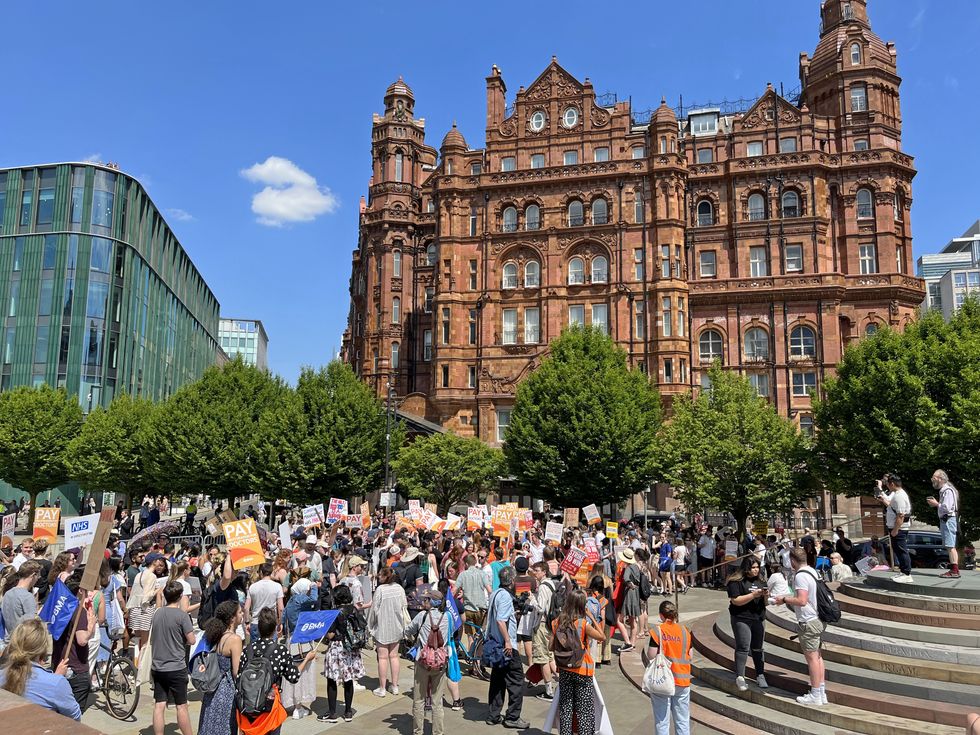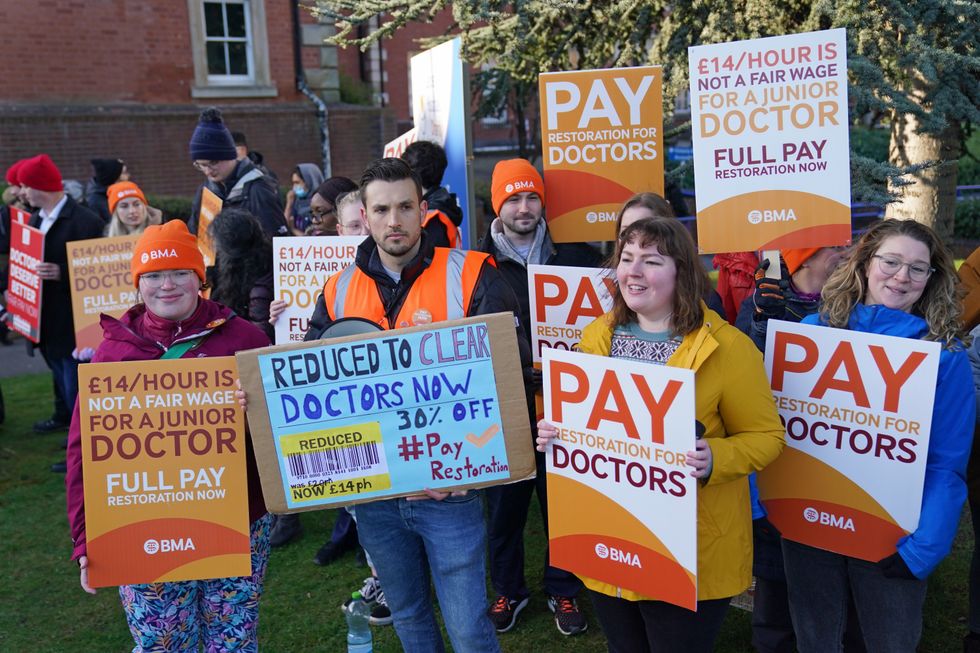
They have begun their fifth round of strikes this morning
PA
BMA junior doctors have taken 16 days of industrial action so far
Don't Miss
Most Read
Trending on GB News
The junior doctor strikes this year have cost the NHS approximately £1billion so far.
The eye-watering figure has been announced ahead of the latest four-day walkout, which began this morning at 7am.
Across the year so far, junior doctors from the British Medical Association (BMA) have taken 16 days of industrial action.
The walkouts over pay have cost the NHS close to a billion pounds, as money has had to be poured into cover for absent staff.

Striking junior doctors from British Medical Association take part in a rally in Manchester
PA
Health Secretary Steve Barclay said that the strikes were diverting “significant amounts of money” away from front-line services and have led to the cancellation of countless operations and consultations.
Consultants have been brought in to cover for them, however they do not come cheap.
Julian Kelly, the NHS chief financial officer said a third of the spending was “down to the direct net cost of effectively paying more senior staff to cover junior staff who have gone on strike, who you are paying at premium rates”.
Those brought in during the strikes have been paid up to £2,000, and £5,000 for those doing a 24-hour shift.
These staggering prices have fuelled the high bills associated with the strikes, health officials have said.
Almost 835,000 appointments have been postponed since the industrial action began in December.
However even this figure could be incorrect, according to the NHS Confederation who said the true level of disruption is being “masked”.
They said that the number of cancellations could actually be two times this already shocking figure.
The confederation said that many hospitals have stopped booking in routine activity on strike days to prevent causing more disruption to patients.
NHS figures recently released showed that 7.6 million people are waiting for care.
The data also revealed that after the junior doctor strike in June, the waiting list rose by 102,000.
This same walkout led to 106,000 appointments and operations being cancelled.
Barclay said: “Patients are bearing the brunt of the impact of continuous strikes across the NHS, and further action by the BMA will cause more appointments and procedures to be postponed.”
The industrial action on Friday will be the fifth round of walkouts by BMA junior doctors, including some medics who only started their jobs with the NHS as recently as last Wednesday.

Almost 835,000 appointments have been postponed since the industrial action began in December
PA
The BMA want a 35 per cent increase in pay, as they argue that junior doctors have lost more than a quarter of their pay over 15 years duet to wages not keeping in line with inflation.
Yet the Government have offered them a 6 per cent increase, as well as a consolidated £1,250 rise, which they deem “fair and reasonable”.
Barclay said: “Our award balances the need to keep inflation in check while recognising the incredibly important work they do.
“My door is always open to discuss how to improve doctors’ working lives, but this pay award is final so I urge the BMA to end its strikes immediately.”
Yet whilst the strikes continue, analysis suggests that support may be fading.
Far fewer junior doctors are participating in the most recent set of walkouts, with the figure dropping by a quarter since the first round of action in March and the most recent strikes.
Prof Julian Redhead, NHS England’s national clinical director for urgent and emergency care, said on Thursday: “Today’s data is a reminder of the significant pressure on staff with this summer, currently on trajectory to be the busiest in NHS history, all while industrial action continues to disrupt services.
“The NHS will need to prioritise emergency care once again,”, he concluded.








